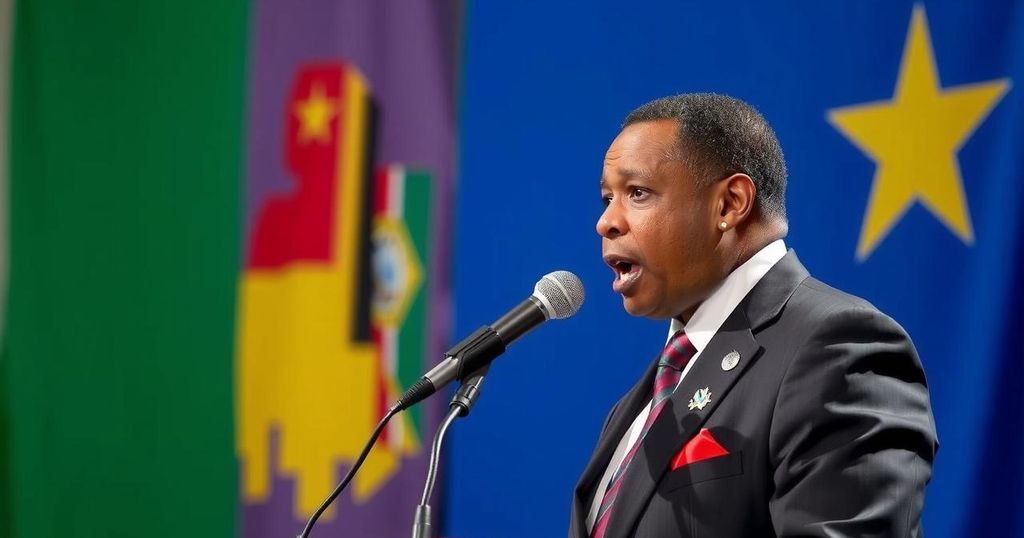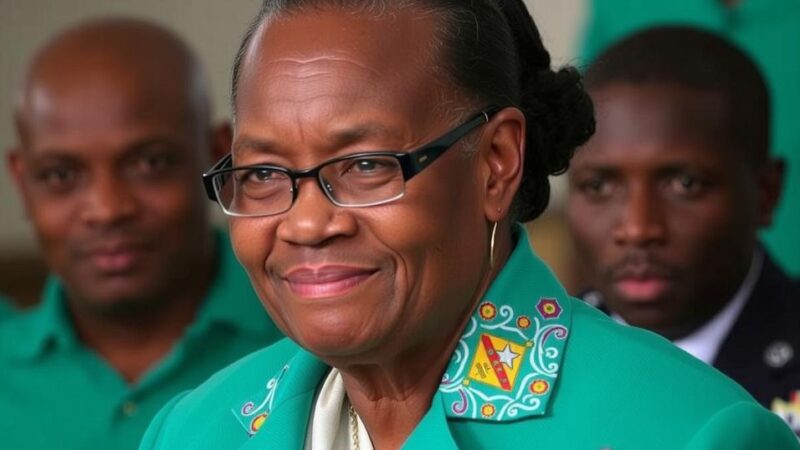Mauritius Prime Minister Pravind Jugnauth has conceded electoral defeat, paving the way for opposition leader Navin Ramgoolam to potentially reclaim the prime ministership. This shift follows a contentious campaign overshadowed by scandals and economic concerns, reflecting a desire for change among the electorate in the prosperous Indian Ocean island nation.
In a significant political shift, Mauritius’s Prime Minister Pravind Jugnauth conceded defeat in the recent legislative elections held on November 10, 2024. The final results are pending official announcement, yet it is anticipated that opposition leader Navin Ramgoolam will reclaim the prime ministership under his Alliance of Change coalition. Jugnauth acknowledged the opposition’s success, stating that the electorate had chosen a different team to govern, reflecting a desire for change in the country’s leadership. This electoral shift follows a campaign marred by controversies, including an explosive wire-tapping scandal that impacted the credibility of the incumbent government’s platform. Despite previously celebrating a historic sovereignty agreement with Britain over the Chagos Islands, Jugnauth’s administration faced challenges related to rising living costs impacting the population’s welfare. Voter turnout was robust at approximately 80%, indicating strong public engagement in the electoral process. Both leaders, Jugnauth and Ramgoolam, hail from political families that have significantly influenced Mauritian politics since independence from Britain in 1968, highlighting ongoing dynastic ties. The economic progress of Mauritius, which is considered one of the most stable democracies in Africa, continues to be overshadowed by concerns regarding governance and corruption.
The political landscape in Mauritius has been historically dominated by two prominent families, a trend persisting since the country’s independence in 1968. This election runs on the backdrop of growing unease among the populace regarding economic stability and governance integrity. The nation, known for its prosperity derived from tourism and financial services, has seen its political narrative influenced by recent scandals, signaling a potential turning point in Mauritian democracy. The outcome of this election not only signifies a possible change in leadership but also reflects the electorate’s call for responsiveness to their socio-economic needs.
The recent elections in Mauritius mark a pivotal moment for the nation as Prime Minister Pravind Jugnauth concedes defeat, suggesting a transition in political authority. Navin Ramgoolam’s anticipated return as prime minister embodies the electorate’s desire for change and reform. As the country navigates its political future, concerns regarding economic management, governance, and the integrity of democratic processes will likely remain at the forefront.
Original Source: www.seychellesnewsagency.com







